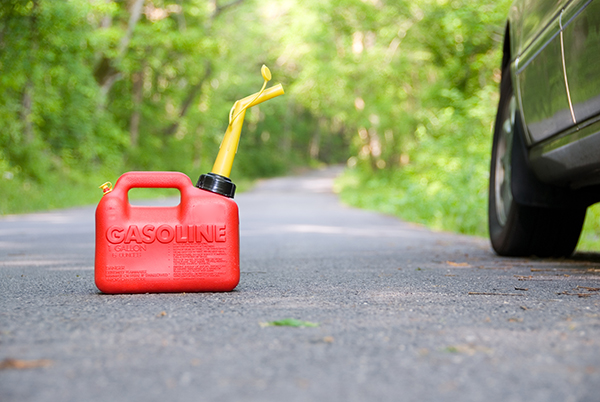
Setting up your emergency stockpile is essential to your survival when SHTF. But food rotation is just as important, because this practice ensures food safety. Neglecting food rotation can result in spoilage, and it also means you waste the time and money you spent on setting up your stockpile.
Remember these food rotation tips to prevent spoilage. (h/t to BeansBulletsBandagesAndYou.com)
Stay organized.
Using a food rotation system ensures that you can find what you need in your stockpile when you need it. Whether you use plain old pen and paper, an app on your phone, or a document on your computer, you need to track what you use and when you consume items.
Practice the "first in, first out" rule: When you buy new items, put them at the back of your cupboard and move the older ones to the front so they would be consumed first.
Store food buckets properly.
Most food buckets and containers will stay fresh, as long as you store them in a cool, dry place with constant temperatures (e.g. a dry basement).
Rotate and inspect your stockpile.
Even canned foods need to be rotated so they can stay "fresh." Before you buy items, check their "Best before" dates. Always purchase the newer, "fresher" cans so you can keep them for as long as you can on your shelves.
Only buy food that your whole family likes eating.
You're only wasting money if you buy something that no one wants to eat. It'll just take up space on your shelves, then eventually it'll need to be thrown away because it expired since no one wanted to eat it.
When buying supplies, opt for items that your family likes, especially items that they won't mind eating for several days in a row during a long-term SHTF scenario. You also need to balance these foods with nutritious items that will keep your family healthy even if you temporarily lose access to fresh produce.
Purchase items that you will normally eat for about two years.
That sale on canned tomato soup may sound good on paper, but stocking up on a two-year supply when you rarely eat it isn't practical. Go for items that you eat regularly, especially since you need to incorporate your canned food storage into your daily meal plans.
Store different types of food that you can eat straight from the can.
When SHTF, you might lose power or you may need to be economical with your fuel.
To cut down on prep time and conserve your resources, stock up on foods that can be eaten right out of the can. This includes items like:
- Canned fruit
- Canned meats (e.g. tuna)
- Hardtack/pilot bread
- Peanut butter
Watch your sodium intake.
Never sacrifice your health for convenience. A lot of canned foods are high in sodium, so always check food labels.
Limit your consumption of foods that contain sodium to maintain your heart health and blood pressure.
Oily foods have a shorter shelf life.
Foods and other items with high oil content have a shorter shelf life compared to other products with low fat or oil. For example, cooking oil has a relatively short shelf life before it becomes rancid.
Acidic foods can corrode cans.
Acidic foods, such as peaches and pineapples, are very hard on their cans. The acid can make cans rusty, so consume these foods immediately. (Related: Food storage tips and tricks for preppers.)
Medication has a limited shelf life.
When storing various types of medication, you need to remember that prescription and over-the-counter drugs, vitamins, minerals, and supplements all age differently. While some drugs simply lose potency the longer they sit on your shelves, some drugs can become dangerous as they age and break down.
Keep medication and supplements away from rooms with high temperatures, sunlight, and extreme temperature variations. Check labels to determine if your medication needs to be stored at room temperature or if they need to be refrigerated.
If you keep medication in your first aid kits, check everyday carry (EDC) kits, bug-out bags (BOBs), and car emergency kits regularly so you can rotate your supplies.
Even if disaster doesn't strike, make it a habit to rotate your food supplies to prevent spoilage and to make the most of your survival stockpile.
Sources include:
BeansBulletsBandagesAndYou.com 1
Please contact us for more information.





















